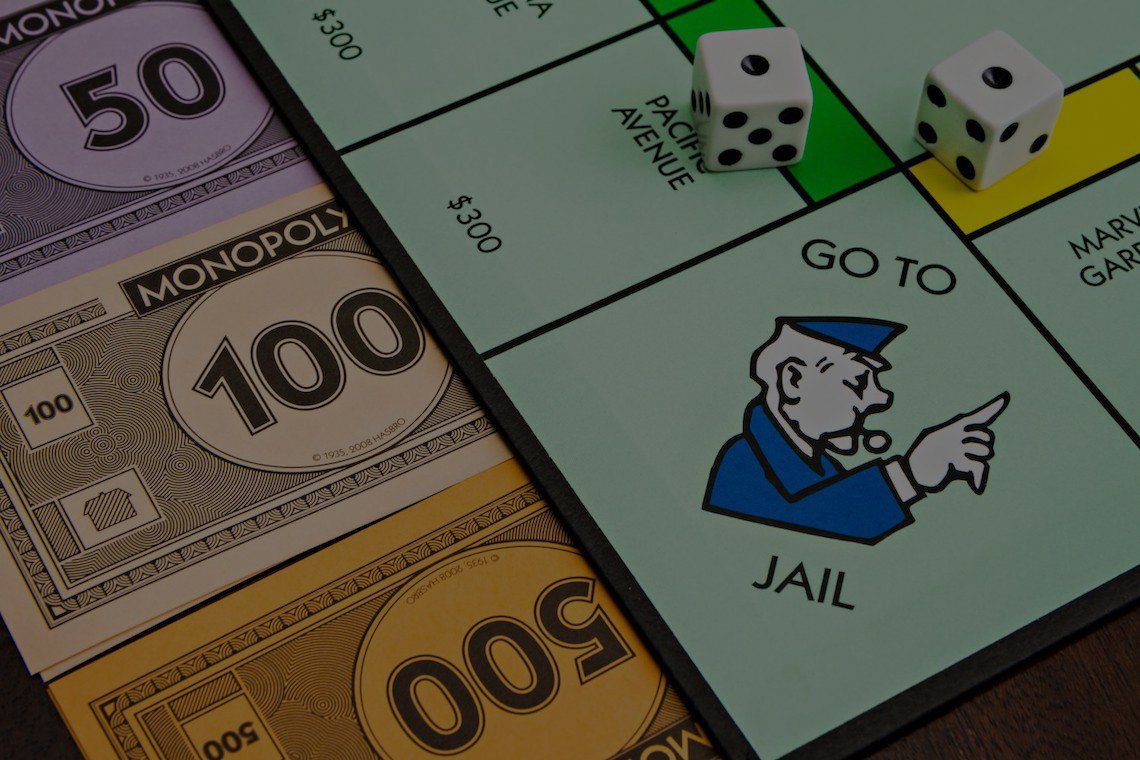 Starting in 1929, the Great Depression brought the United States economy to its knees. The stock market collapsed, nearly half of the US banks had failed, and at its height unemployment sat at 25% with over 13 million Americans looking for work. In only three years the average income of American families plummeted by 40%. Americans were scared.
Starting in 1929, the Great Depression brought the United States economy to its knees. The stock market collapsed, nearly half of the US banks had failed, and at its height unemployment sat at 25% with over 13 million Americans looking for work. In only three years the average income of American families plummeted by 40%. Americans were scared.
In the 1920s the wealthiest 1% controlled 40% of the country's wealth, leaving much to be desired for millions of Americans, even something as simple as a board game. First being marketed in 1935 during the Great Depression, MONOPOLY was an instant success becoming the best-selling game in America. Since its launch, over 275 million sets have been sold worldwide.
Investing in MONOPOLY might be a fictional roll of the dice, but there are many invaluable lessons commercial real estate investors can apply to the real world.
1. Location, Location, Location
Most players assume that Boardwalk and Park Place are the smartest investments because they charge the highest rent, which is a strategic mistake. In reality, the orange properties, St. James Place, Tennessee Avenue, and New York Avenue are the smartest investments because they receive the most traffic. The orange properties are landed on most frequently because rolling a 6, 8, or 9 from Jail lands a player directly on top of them. Statistically players are likely to roll one of those with two dice 1/3rd of the time. Only by rolling a 10 or 11 does the player skip the orange properties entirely which is only about 10% of the time. Any roll less than 6 puts the player at risk of landing on the orange properties on their next roll. Jail is a popular spot because there are three ways to be sent there: you can get there by drawing a card, you can be sent there by landing on the Go to Jail square, and finally you can get there by rolling doubles 3 times in a row. While the orange properties do bring in lower rent than Boardwalk and Park Place, they are also cheaper to build houses and hotels on.
Your commercial real estate investment is much more than the physical structure. The surrounding community and local economy have a big impact on your investments occupancy and its value. With some cities and states making greater strides toward recovery and growth than others, choosing a local real estate market is key to smart real estate investments.
2. Cash Reserves
When you land on a property owned by the bank, the price is not up for debate. But as the properties are bought by different players and as the game progresses, some players might find themselves in need of quick cash to remain solvent, and that’s when their problem becomes your opportunity. Don’t hesitate to negotiate with other players to buy off-market properties at a great price. In order to capitalize on new opportunities, having large cash reserves is necessary. It also allows a commercial real estate owner to weather the storm during a tenant vacancy or an economic downturn.
Being a commercial real estate owner is an easy job when the economy is booming, there’s a line of tenants out of the door and your property is in immaculate condition. But when the economy starts to flounder, tenants are no longer able to afford their rent and your property is in need of repairs and improvements, the true colors of being a commercial real estate owner arise. Planning for the worst and hoping for the best should be the motto of all real estate investors.

In order to keep your commercial property thriving in the good times and surviving in the bad, it’s essential to build up a large cash reserve. During the recent recession, we saw firsthand how easily commercial real estate owners could lose their property and life savings if they were not properly prepared for the economic downturn. Cash reserves are not just crucial for capitalizing on new opportunities but surviving economic recessions and for every day events that occur to commercial properties.
Having a lack of cash reserves puts you in a weakened position and can force you to do second-rate repairs, obtain less then suitable tenants and bend over backwards to tenant demands out of fear of vacancy. The bottom line is that cash on hand is key. One bad step (or roll) could bankrupt you in the real world, or MONOPOLY world.
3. Diversify
You’ve finally managed to achieve a monopoly, congratulations! But wait, there are 40 spaces on the game board and 28 properties. The chances of the other players landing on your monopoly right away are slim. Staying diversified between properties, railroads, and utilities can help create income while you wait for the other players to land on your new monopoly.
JP Morgan Asset Management recently published a study that concluded proper diversification actually increases total returns and lowers the overall volatility of a portfolio. Specifically, the firm tested a minimum 20% allocation to alternative investments against traditional stock and bonds. Owning commercial real estate that produces consistent passive income and diversifying your stock portfolio to include exposure to a variety of different industries are examples of diversification. In other words, don’t put all your eggs in one basket.




